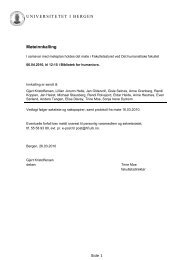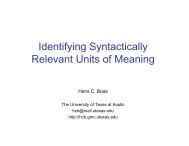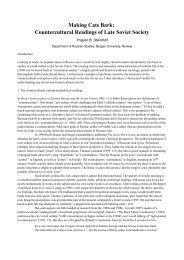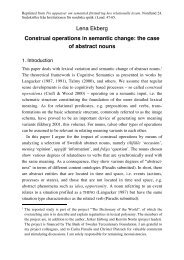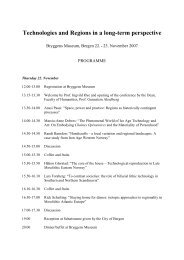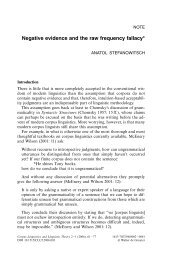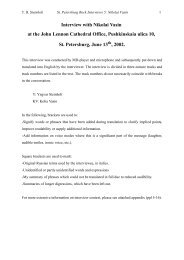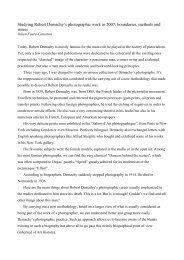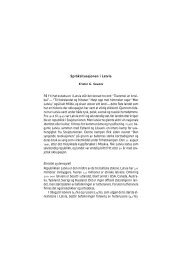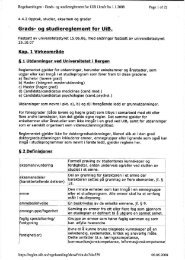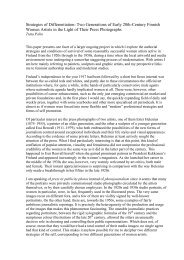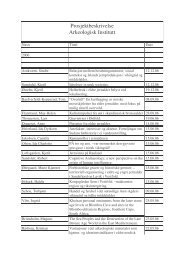THE BOOK OF POEMS IN TWENTIETH-CENTURY ... - TopReferat
THE BOOK OF POEMS IN TWENTIETH-CENTURY ... - TopReferat
THE BOOK OF POEMS IN TWENTIETH-CENTURY ... - TopReferat
You also want an ePaper? Increase the reach of your titles
YUMPU automatically turns print PDFs into web optimized ePapers that Google loves.
pronouns она and ты. She can, however, approach her by way of her earthly<br />
manifestations, the trinity of Maria, Teresa, and Solveig. Together, these human<br />
incarnations create a larger three-fold unity, a Three-in-One (Все они—ты Одна).<br />
Together, they encompass the multiple roles of the feminine—Bride, Mother, and Sister.<br />
Gippius's choice of Solveig, the heroine of Ibsen's dramatic poem Peer Gynt, for<br />
her earthly trinity continues to reveal her own personal history. Gippius compared<br />
Solveig's faithful love for Peer Gynt throughout his roguish travels to her own constant<br />
love for Filosofov after their final split in the 1920's. At the end of Ibsen's play, when<br />
Peer Gynt asks where his true self has been during all the years of his misdaventures,<br />
Solveig, both his mother and his bride, replies: "Here—in my faith, my hope, and in my<br />
love." 133<br />
In Коричневая тетрадь, Gippius, despite her doubts and despair, wanted to<br />
provide the same answer to Filosofov: Не знаю, дойду ли до этого, но хочу дойти. До<br />
полной реализации того, что ты не погиб, что ты живешь—со мной, в моем сердце<br />
(больном), именно ты единственный, ты сам. «Где был я, я сам?—тревожно, в<br />
роковую минуту, спрашивает Петр Гюнт. И для него, как для тебя есть это место.<br />
Не бойся. 134<br />
After she learned about Filosofov's death in 1940 she again recalled<br />
Solveig, envying her pure faith: Чего бы проще, кажется, говорить, как Сольвейг:<br />
«Где б ни был ты—Господь тебя храни,/А если ты уж там—к тебе приду я»... Да,<br />
приду. А если не приду—ведь я этого не узнаю... Но мысль, что не приду и не<br />
узнаю... Gippius longed to believe as clearly as Solveig, yet doubts constantly tormented<br />
her. While her faith was often in question, her love was not: вера—всякая, даже не моя<br />
133 Henrik Ibsen, Peer Gynt, trans. Gerry Bamman and Irene B. Berman (New York: Theatre<br />
Communications Group, 1992), 238.<br />
134 Gippius, Dnevniki, vol. 2, 353. Emphasis Gippius's.<br />
104



